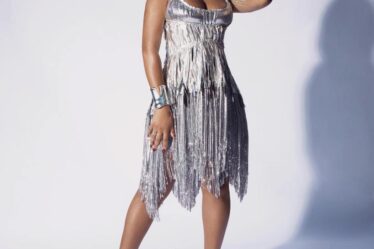
Today’s newsletter is a tale of two very different book sagas.
One involves Taylor Swift. The other is the story of a little-known Twitter user with a risqué name who accidentally instigated the most delightful thing that’s happened on Twitter in [checks notes] a really long time. We’ll begin with the latter.
It goes like this: On Sunday, a Twitter account devoted to the anime series “Trigun” tweeted the following plea to their followers:
The book “This Is How You Lose the Time War,” by Amal El-Mohtar and Max Gladstone, was critically acclaimed when it was released in 2019, winning a Hugo Award for Best Novella the following year. (El-Mohtar is also a columnist who writes about sci-fi books for The Times.)
What happened next was surprising. Twitter is great for shitposting and — somewhat less recently — keeping up with the news, but isn’t historically so great at motivating users to do things IRL. In this case, though, the tweets appear to have motivated some people to actually go out and buy the book. “This Is How You Lose the Time War” rocketed up the Amazon charts, landing in the top ten.
“We are literally sandwiched between Barbara Kingsolver’s ‘Demon Copperhead’ and Wendy Loggia’s ‘Taylor Swift: A Little Golden Book Biography,’” El-Mohtar told me.
Gladstone had just stepped off a plane for a family vacation when his phone started blowing up with notifications from people who had seen the tweet. El-Mohtar said her husband spotted it on his For You feed.
The authors don’t yet have a concrete sense of what exactly the sudden rise on the Amazon chart means in terms of actual sales. “It’s very opaque. As far as we can tell, a lot of the Amazon sales rank has to do with sales acceleration,” El-Mohtar said.
As for his motivation, Bigolas — who is 22 and wishes to remain anonymous and has gained 20,000 Twitter followers since this began — just really wanted to tell people how much he loved the book.
“I read the “Time War” only last week, and finished it at about 2 AM. I was floored by its depiction of an intense romance that transcended time and space,” he told me. “It was so visceral. I felt like I was going to go crazy, I had to share with someone.”
Even if the bump turns out to be only an illusion, the collective joy will have been enough.
“People are enjoying what seems to be a resurgence of an older experience of Twitter, one that is more about people laughing together in a sort of shared delight at something good, that isn’t about making fun of someone, that isn’t about dumping on someone,” El-Mohtar said.
Swiftie Sleuthing
The Bigolas drama was not this week’s only strange collision between publishing and internet culture. A not-yet-released book from Macmillan, titled “4C Untitled Flatiron Nonfiction Summer 2023,” began climbing up Amazon’s pre-sale charts this weekend, thanks to one of the strongest forces on the internet: Swifties.
The pop star’s fans convinced themselves that the book was by their beloved Taylor Swift.
To be clear, it’s not. (It’s an oral history of the K-pop group BTS.)
But Swifties somehow convinced themselves it was, through a combination of internet sleuthing and numerological backflips. They found the number 13 — Swift’s birth date, lucky number and often an Easter egg in Swiftie lore — in the date that the book’s author would be revealed (June 13) and its number of pages (544, if you separate all of the digits and then add them up). Other pieces of pseudo-evidence: The book’s release date, July 9, is a lyric in the Swift song “Last Kiss,” and Swift referenced the date in a recent Instagram post announcing the re-release of her album “Fearless.” (The words “dear reader” in the Instagram post added fuel to the fire.)
The incident is goofy, but it had real consequences for booksellers, customers and the publisher.
Bob Lingle, the owner of Good Neighbor Bookstore in Lakewood, N.Y., first heard about the Swiftie speculation in a Facebook group for independent booksellers. On Saturday morning, he posted to his bookstore’s TikTok account about the rumors and opened up pre-orders for the book, just in case.
More than 600 orders flooded in within a day. “I was going to bed that night and the orders were coming in faster and faster,” he said. “I’m like, ‘I can’t go to sleep.’” He shut down pre-orders before he went to bed.
Within a couple hours of posting the video, Lingle got a direct message on TikTok from Flatiron, the imprint of Macmillan publishing the book, that asked him to take down the video. He obliged.
Lingle said that BookTok has been far more helpful than Instagram or Facebook in helping his store reach new customers. But in this case, he learned that its frenzy can come with consequences.
“It blew up in my face, ultimately,” he said. He ended up canceling more than $25,000 in orders for the mystery book after the news broke that the book was not Swift’s. When we spoke on Wednesday, he politely declined to guess who the book’s true author might be.
“I’m retiring from the speculation game,” he said.
Internet Candy
Callie Holtermann contributed reporting to this newsletter.



